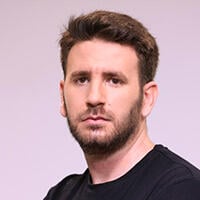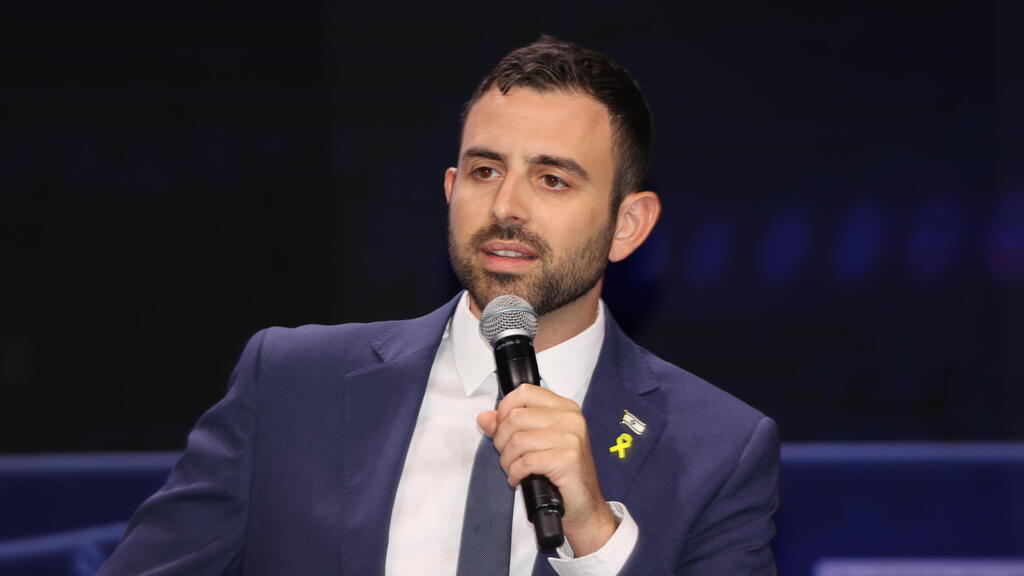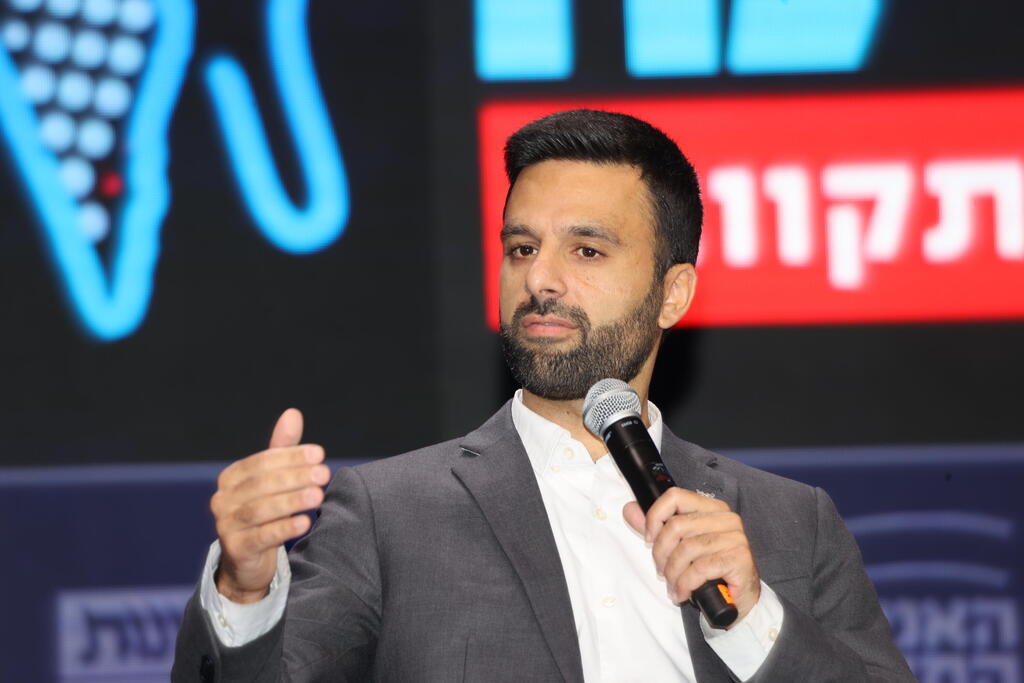Eylon Levy, who served as the government spokesperson during the initial six months of the war in Gaza, delivered a sharp critique of the state's handling of its public relations efforts on Wednesday morning at the People of the State conference held by Ynet and Yedioth Ahronoth. "We are in free fall to the bottom of the abyss in terms of our legitimacy - which is why I can no longer hold my tongue," he said.
He pointed out flaws in the operations at the Prime Minister's Office. "The State of Israel has declared 'an absolute failure' in the public relations war," he said. "I'm not saying this as criticism of the wonderful people who are on the front lines doing the work; I'm speaking at the state level. Public relations is a war, and the state simply did not define this war strategically with the necessary ammunition, protective gear and manpower, and we are seeing the results."
Levy believes it's not too late for improvements. "Now I don't want to continue pointing out mistakes, what wasn't done right. The sad part is we could have done things differently. The good news is, it's still possible to salvage the situation," he said. Levy proposed three solutions to address the crisis and noted that when the Prime Minister and his team want to, they know how to respond immediately, especially concerning personal matters.
"The first thing, the State of Israel must recruit an army of professional, committed spokespersons who are salaried, with proper contracts, in all languages. Language isn't just about speaking Norwegian and Swedish. It's also about understanding the culture of the place. These spokespersons need proper briefings, social media support, someone to edit for them and help push them out, so that in every language there's someone identified as a spokesperson for Israel. The second thing, we need to establish a public relations system that is essentially a crisis management center.
"Not an advertising agency. You know who knows how to do this well? The Prime Minister's Office. Because there's no report against the prime minister that they don't immediately respond to by the end of the report. We need the same thing. And the third thing, perhaps the most important: to activate the Diaspora. Israelis sometimes underestimate the Jews of the Diaspora, but there's an amazing awakening there of people who want to help us, who understand that it's vital not only for us but also for them."
Levy revealed that during his tenure as the government spokesperson in English, he was not briefed by any official body before he himself briefed foreign journalists. "I was put up as 'the spokesperson for the Israeli government to foreign media.' I issue statements and hold press conferences on behalf of the government, that's how it's perceived when it's broadcast live. Many volunteers helped me."
Are you alone? Isn't there a team behind you, training you, explaining to you?
"Yes, from volunteers who joined. From the state? No. No. And that needs to change. We rely on press releases from the IDF spokesperson, the prime minister, the Ministry of Foreign Affairs, the Minister of Defense, the president, but all the real ammunition to fight beyond the general messages, that's something we had to initiate.
So there was no strategy.
"I wasn't really exposed to behind-the-scenes information. If I needed to consult on specific issues there were advisors I knew to turn to and check what exactly we wanted to say on that matter, but when I got up and held a half-hour press briefing on UNRWA, I stayed up all night in the living room to actually write a government statement on UNRWA and that needs to change. It has to change."
Israeli public relations activist Yosef Haddad also addressed the conference. "The whole issue of public relations in Israel was perceived as something incidental. Israeli public relations were seen as something not essential. We said 'we have the strongest army in the world,' 'we have the strongest country in the Middle East,' we don't need public relations. While we were sleeping and dozing off, our enemies entered politics, academia, culture and sports and planted this virus of terror everywhere."
Haddad, who noted that since the October 7 massacre he has spent hundreds of thousands of shekels of his own money on public relations, added: "For the first time there is some recognition that public relations are important, and therefore even at the torch-lighting ceremony, they light torches that are Israeli public relations-oriented and this indicates the biggest change that has occurred in Israeli society regarding public relations. They used to say 'dismantle it,' 'close budgets.' Now they say 'no, we need to invest in public relations, it's an additional war that we simply neglected.'"
Former beauty queen Noa Cochva, who was recruited to the public relations front a few weeks after she was discharged from reserves as a combat medic in the south, shared at the conference: "I was burning to do something, and then I just flew to the U.S.," Cochva recounted. "Suddenly I realized how much the Jews of the Diaspora need us, they need to feel that connection to Israel. We have the State of Israel as an anchor and they don't have that. They encounter antisemitism on the street and they hide their Jewish symbols and here we can cling to each other."
She added: "Everyone stopped their lives from October 7 because you can't really go back to routine and the moment I was discharged I felt I had to continue to be active and just do everything I can, use every platform I know to keep speaking to the country, to continue promoting the country, and it's just sad that people are really all doing it on their private time, private initiative, everything we're really doing with 10 fingers."
Emily Schrader, an advocacy activist and journalist at Ynetnews, said at the conference: "I think it's no secret that we have issues with international media, and a significant part of this is undoubtedly antisemitism. We're currently seeing this with the global narrative about what's happening, which doesn't reflect reality. It's crucial now, more than ever, to address this, just as we handle Al Jazeera, which I consider the most dangerous entity in international media.
"For a long time, we did nothing, and the problem with the current narrative is that the world doesn't understand that this war isn't just happening within our borders. It's not merely Israel against Arabs, Palestinians, or the State of Palestine. It's Israel and the entire West against the Islamic Republic. That's the real issue. We need to educate the world about this problem that we must confront."






